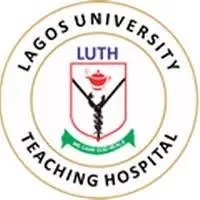
LUTH ANNOUNCES BREAKTHROUGH IN CURE OF SICKLE CELL DISEASE
The Lagos University Teaching Hospital (LUTH), in partnership with Sickle Cell Foundation Nigeria (SCFN), has establish a high-quality, safe bone marrow transplant programme that meets international standards for the cure of sickle cell disease in Nigeria.
This is contained in a statement jointly signed by the Chief Medical Director of LUTH, Prof. Wasiu Adeyemo and National Director, Sickle Cell Foundation Nigeria (SCFN), Dr Annette Akinsete, on Sunday in Lagos.
It said that Nigeria had the most significant burden of sickle cell disease worldwide, saying that Individuals affected with the disease suffer life-threatening complications from early childhood, serious damage to their organs and reduced life expectancy.
“The establishment of comprehensive care programmes, including newborn screening, penicillin prophylaxis, and Transcranial Doppler screening in children to identify those at risk of stroke.
“This is followed by chronic blood transfusion therapy and the increasing use of hydroxyurea therapy, has improved the proportion of children surviving into adulthood.
“But, has not improved the proportion of adults living to older age, especially for the most severely affected.
“Bone marrow transplant using a donor from a family member is an established cure for this disease,” the statement said.
According to the statement , bone marrow transplant is associated with known complications such as infection and graft-versus-host disease (when donor cells can attack the patient), infertility, and even death.
It explained that this procedure has been much improved over the last 20 years to ensure good outcomes and limit complications.
“Bone marrow transplant is now an approved therapy for children and adults with severe sickle cell disease. Bone marrow transplant is a complex procedure requiring a multidisciplinary team approach and involves treatment and close follow-up for approximately 12 months,” it said.
The statement said that the complexity and costs have severely limited those who can obtain this treatment, and most have sought the treatment outside Nigeria, which causes severe hardship for patients and families.
It said: “Recognising the gaps in care for individuals affected by the disease in Nigeria, SCFN and LUTH established a bone marrow transplant programme at LUTH.
“In preparation for a locally adapted and cost-effective bone marrow transplant programme in Nigeria, a post-transplant clinic was initially established in 2019, a first in sub-Saharan Africa, to provide post-transplant care to patients who had travelled to other countries for bone marrow or stem cell transplants”.
According to the statement, LUTH/SCFN bone marrow transplant programme consists of a high-level multidisciplinary team that includes paediatricians, adult haematologists, psychiatrists, anaesthesiologists, nurses, dieticians, pharmacists, and other ancillary health personnel.
It added that the programme had been guided by the scientific expertise and leadership of Prof. Adetola Kassim of Vanderbilt University Medical Center, saying that, to further strengthen expertise in the program, Prof Josudela Fuente from the Imperial College London Healthcare NHS Trust UK joined the team in 2022.
The statement said: “The first set of patients are currently undergoing bone marrow transplants at LUTH and were admitted in the last week of August 2024.
“They received a treatment regimen of exchange blood transfusions, chemotherapy and anti-infective prophylaxis to prepare them for the infusion of bone marrow stem cells that were harvested from family donors, processed and given Sept. 17 and Sept. 19, 2024.
“Both patients are currently undergoing immediate post-transplant care within the transplant unit at LUTH.
“We want to express our appreciation to patients and families, the Management of LUTH and SCFN; board of directors, Lagos State Government, Chevron, collaborative and technical partners, and other dedicated staff who worked around the clock to ensure success of this programme”.

